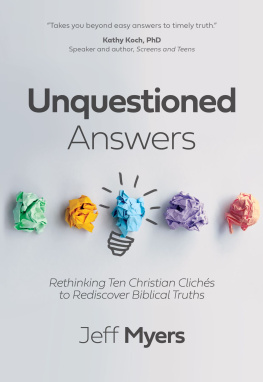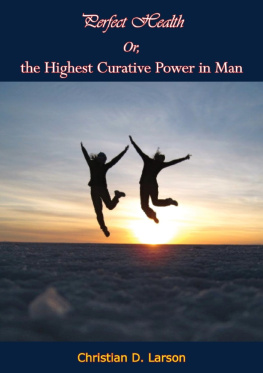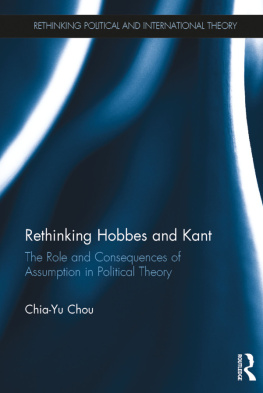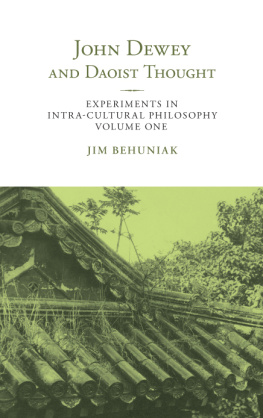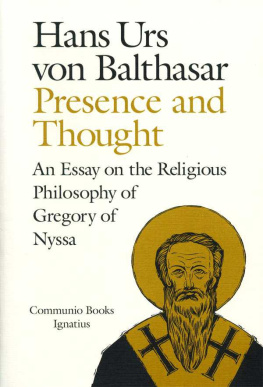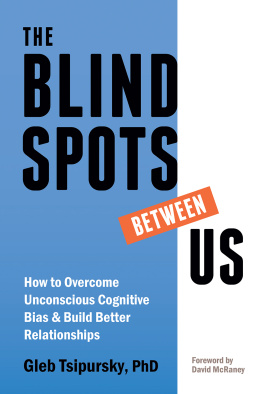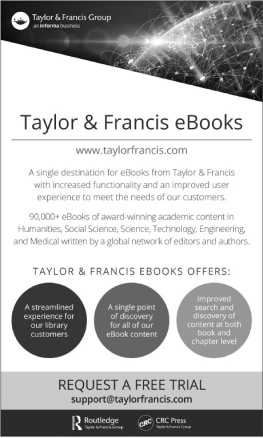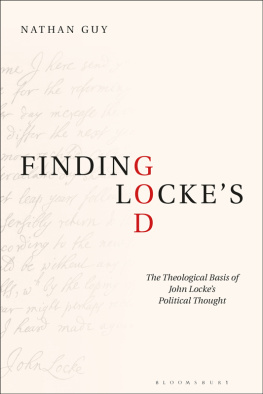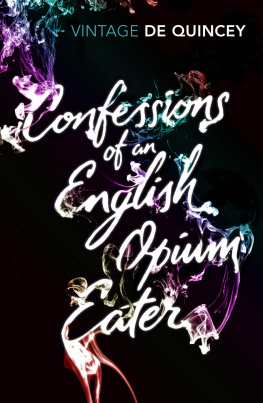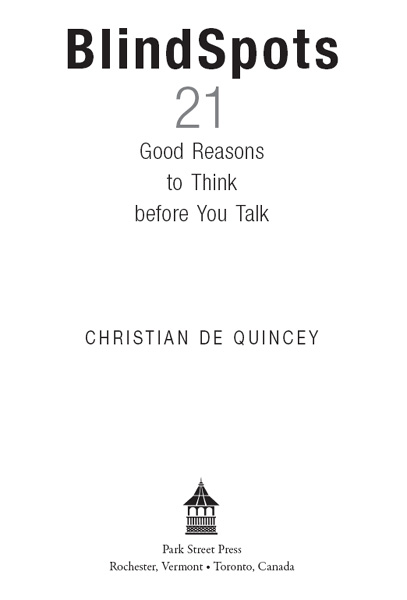Christian de Quincey - BlindSpots: 21 Good Reasons to Think before You Talk
Here you can read online Christian de Quincey - BlindSpots: 21 Good Reasons to Think before You Talk full text of the book (entire story) in english for free. Download pdf and epub, get meaning, cover and reviews about this ebook. year: 2015, publisher: Inner Traditions/Bear & Company, genre: Religion. Description of the work, (preface) as well as reviews are available. Best literature library LitArk.com created for fans of good reading and offers a wide selection of genres:
Romance novel
Science fiction
Adventure
Detective
Science
History
Home and family
Prose
Art
Politics
Computer
Non-fiction
Religion
Business
Children
Humor
Choose a favorite category and find really read worthwhile books. Enjoy immersion in the world of imagination, feel the emotions of the characters or learn something new for yourself, make an fascinating discovery.

- Book:BlindSpots: 21 Good Reasons to Think before You Talk
- Author:
- Publisher:Inner Traditions/Bear & Company
- Genre:
- Year:2015
- Rating:3 / 5
- Favourites:Add to favourites
- Your mark:
BlindSpots: 21 Good Reasons to Think before You Talk: summary, description and annotation
We offer to read an annotation, description, summary or preface (depends on what the author of the book "BlindSpots: 21 Good Reasons to Think before You Talk" wrote himself). If you haven't found the necessary information about the book — write in the comments, we will try to find it.
Reveals faulty thinking and conceptual blindspots that distort beliefs in science, philosophy, and spiritualityfrom the universe exploded from nothing in a Big Bang to we create our own reality
Explains how thought viruses spread as we use these clichd assumptions in our daily communications
We live in a world filled with clichsconvenient assumptions and unquestioned conclusions that many of us use without giving them a second thought. We all spread these thought viruses, infecting everyone we come in contact with. But many of these blindspots in how we think about ourselves and the world do not withstand rigorous scrutinyor even casual scrutiny in some casesyet they fall out of the mouths of scientists, religious teachers, journalists, and authors with dumbfounding frequency.
Over the years philosopher Christian de Quincey spotted these cognitive gremlins in books, blogs, websites, TV shows, movies, classrooms, and casual conversationsand he wondered: Why do so many people speak before thinking, spreading ideas that make no sense, yet fool us into thinking they do? How did these unquestioned beliefs about life, space, time, energy, consciousness, evolution, artificial intelligence, and even God take hold in our collective consciousness?
In this book, de Quincey deliberately provokes and illuminates the dark side of jumping to conclusions, casting a skeptical eye on 21 beliefs that keep science, philosophy, and spirituality in the darkfrom the universe exploded from nothing in a Big Bang and we create our own reality to nobody knows what consciousness is and everything is energy. These ideas distort and block our understanding and openness to important questions about life, the universe, mind, matter, God, and the miraculous.
By exposing these thought viruses that take our minds hostage when we fail to think things through, de Quincey aims to help change the way we think not just about thinking but also about how we live our lives, interact with others, and contemplate the world around us.
Christian de Quincey: author's other books
Who wrote BlindSpots: 21 Good Reasons to Think before You Talk? Find out the surname, the name of the author of the book and a list of all author's works by series.


